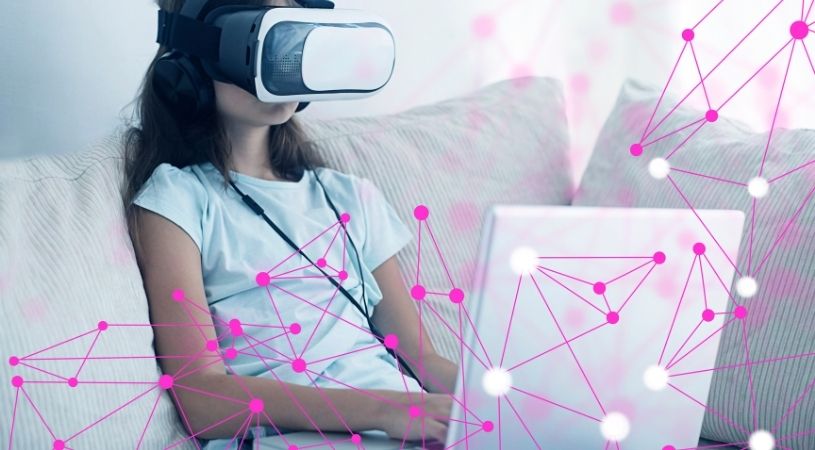Is Virtual Reality (VR) a New way of Learning?
We have been hearing that technology is going to take over the education space by new innovations coming in to enhance students learning experience and transform the way we learn and teach. Although in theory VR technology should be an amazing tool for learning and teaching, but the reality seems to be more interesting in educational settings.

Some of the major players in the education and technology sectors including Google and Facebook ( Oculus ) are already pursuing applications for the classroom. To give you an idea, We will take a look at some of the best examples of how virtual reality is already being used by schools and learning institutions around the world.
-
Architecture and design
Schools are also finding that virtual reality technology is a great way to spark student’s creativity and keep them engaged, especially when it comes to architecture and design.
The Oculus Rift hardware makes it possible for architects to take computer-ge nerated 3D models and place viewers into those 3D models in order to bring their plans to life
-
Virtual field trips
One of the most popular applications of VR technology for learning is Virtual field trips, many schools have begun using Google Expeditions to transport students to faraway and even inaccessible parts of the planet.
-
Skills training
VR can also help students to learn practical skills, and one of the biggest benefits is to train people in this way that students can learn from realistic scenarios without risking themselves into real-life scenarios.
-
Special education
Children who are not normal and have some disability can take the help of VR and can learn and experience the same as normal students. Special students have been using the Oculus Rift headset with normal students in the classroom. Technology and special education instructor have highlighted how their student’s imaginations have increased and given them a visual insight they wouldn’t otherwise have.
-
Distance learning
In the situations like Covid-19 pandemic, Virtual reality technology also has huge potential in the distance learning industry, and a recent study from Pennsylvania State University researchers showed that VR technology can improve learning outcomes for online students.
Newly developed applications provide virtual online chat spaces where students with a VR headset can project themselves and interact with lecturers and other students.
-
Virtual campus visits
Students who plan to migrate to abroad for further education but earlier were not able to get an insight of College/University Campus but Nowadays, VR Technology is changing the way students select universities and many schools have now started virtual reality campus tours as a way to connect with applicants on a wider scale. These campus ‘visits’ allow students to see what it would be like to attend universities in other cities and countries even if they can’t visit in person.
The virtual reality tours use photos and videos of campuses and their surroundings that enable students to explore the campuses at 360-degree angles.
-
Game-based learning
Virtual reality has completely changed the way games can be used for learning. Game-based learning works because it increases engagement and motivation, and virtual reality can take this to the next level. For instance, To learn language skills CEVREX has amalgamated VR into learning a new language which has enhanced the learner’s experience.
-
Language immersion
One of the best ways to learn a new language is through full immersion, as this requires students to listen to and speak the language they’re learning all day, every day. Since most of us can’t afford to jet off to another country for weeks or even months at a time, virtual immersion is the next best thing. VR simulations can trick the brain into thinking the experiences are real, and a number of new language learning apps that use VR are now being developed.
One such app is CEVREX, this platform enables students to learn a new language by virtually experiencing Real-Life scenarios.
Do you want to Learn New Language in the Easiest way via VR?
Then CEVREX is the best platform to learn a new language by experiencing real-life scenarios along with getting knowledge about essential topics like Canada’s Universal Healthcare System.

Leave A Comment